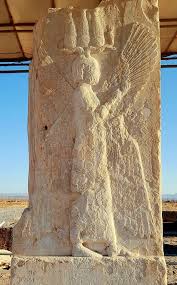Unveiling the Legacy of Cyrus the Great

Introduction
Cyrus the Great, also known as Cyrus II of Persia, is considered one of history’s most significant rulers. As the founder of the Achaemenid Empire, he was instrumental in establishing the first Persian Empire, which became one of the largest in history. This article explores his contributions to governance, culture, and human rights, shedding light on why Cyrus remains a pivotal figure in both ancient and modern contexts.
Key Achievements and Events
Cyrus the Great reigned from 550 to 530 BCE and is best known for his remarkable military conquests and diplomatic genius. Under his leadership, the Persian Empire expanded rapidly, incorporating various regions including Lydia, Babylon, and parts of Central Asia. His approach to governance was revolutionary; he respected the customs and religions of the lands he conquered, which fostered a sense of loyalty among diverse populations.
One of his most significant achievements was the creation of the Cyrus Cylinder, often described as the first declaration of human rights. This ancient clay artifact outlines his respect for the rights of others, marking a progressive approach to leadership that was uncommon in his time. The cylinder served as a symbol of benevolent authority, promoting tolerance and coexistence among the empire’s various ethnicities.
Impact on Modern Governance
The legacy of Cyrus the Great extends far beyond his lifetime. His principles of governance have had a lasting influence on the concepts of justice and human rights throughout the ages. Many modern leaders and human rights advocates regard him as a precursor to contemporary democratic ideals, citing his policies of freedom of worship and respect for local customs as early examples of civil liberties.
A recent global interest in Cyrus’ legacy has emerged, especially in discussions surrounding democracy and human rights. His influence can be seen in various international treaties and declarations that promote similar values. As countries strive for better governance, Cyrus the Great’s methods of leadership remain relevant.
Conclusion
Cyrus the Great’s commitment to justice, respect for cultural diversity, and pioneering approach to governance set a standard that resonates even today. As we examine the evolution of human rights and democracy, the lessons from his rule provide essential insights into the importance of compassion and respect in leadership. His legacy continues to inspire movements around the world, reminding us of the timeless relevance of his principles in shaping a better future.









